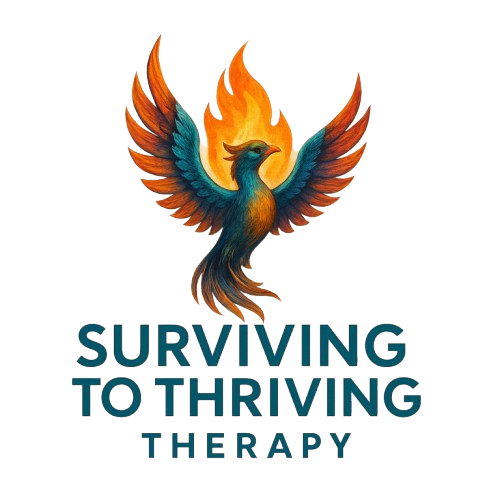From Guarded to Grounded: Creating Secure and Healthy Relationships After Trauma
As I reflect back on my own relationship history, I can see how trauma shaped my patterns of interacting with others. I would try to avoid trust or connection: I felt sure emotional and physical closeness would be more trouble than it was worth, and I stayed on guard against forming bonds.
But even in relationships that lacked real connection or reciprocity, I struggled to let go. Predictable disappointment felt safer than isolation. I’ve realized that building a life with someone means being vulnerable—if you rely on a person and they let you down, it hurts. Part of me longed for a partner I could trust, but another part believed no one could be reliable.
When someone new asked me out, I tried to push them away. I listed all the reasons I was flawed and unlikeable, my distrust of men, my anger, my fear. Then I got called out: “Stop trying to push me away.” We hadn’t even gone on a date yet. In that moment, I saw my pattern: expecting rejection before giving someone a chance to show up differently.
Dating with this kind of self-awareness feels empowering. I’m not getting “swept off my feet”—I’m consciously choosing to form an attachment. We regularly check in about our expectations and our dynamic. If something’s not working, we talk about it and adjust. Instead of wondering or guessing, we’re co-creating our relationship together. Choosing marriage is a risk, but I can be a “me within the we-” my spouse gives me space to meet my own needs while still offering support when I ask for it.
